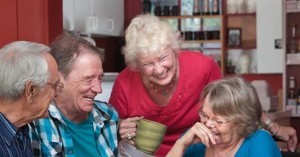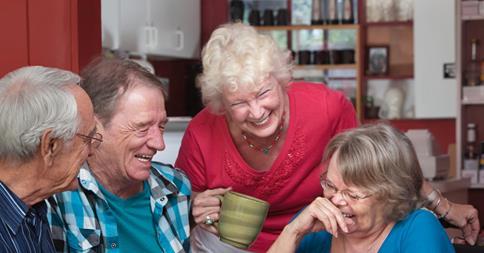 “So… How are YOU?”
“So… How are YOU?”
That depends on who’s asking. I mean, do they really want to know? I’ve already spent at least ten minutes bringing them up to speed on my husband’s health and still wasn’t through.
“He’s been through a lot. There was the surgery for the perforated diverticulum in November which left him with a temporary colostomy.” She cringes. “And that was when they discovered the lung cancer. The CT scan was aimed just high enough for them to see cancer, and thank God they did. They caught it early.” Okay; almost finished with part one of how Steve is. “It’s his body, but I guess we’ve both been through a lot.” I was trying to turn the conversation to the “we” vs. the “he” at this point. “When we started looking for an oncologist and a surgeon, they told us we’d first have to wait ’til the other surgery healed before they could start on the cancer. Altogether, we should be finished with three more surgeries by the end of next year. Then we’ll have a better idea.”
That’s the condensed version of the reply to the sympathetically asked question: “How is he?” There was no way to explain how I was without first explaining how he was. In most conversations, my evaluation was interrupted with prodding questions looking for still more detailed information from the interested party and generally took a half an hour to relate. IF they asked how I was doing, I first needed to do a mental inventory: friend or family?
My friends? Well, they genuinely cared and were always up to speed. My family? They cared, but I usually hedged a little because I didn’t want to worry them and doubted they’d be able to do anything to help me anyway. His friends and family really wanted to hear, “Oh, I’m fine. A little tired, but fine,” because except for the rare two or three I knew I could always count on, the questions were a matter of good manners mixed with morbid curiosity. There was always the kiss-on-the-cheek goodbye when they’d whisper in my ear—“Just let me know if there’s anything you need.”
I had decided, not long into the process, that I would do my very best to make my friends a “normal” place.
They were by my side when I was in crisis mode, and they were there without being asked. I had, however, sensed early on that “normal” was not going to be an easy commodity to come by once we got going with surgeries and treatments for the cancer. I wanted to be able to pick up the phone and speak to my nearest and dearest about their children and grandchildren. How was golf? How was work? Retirement? Their new hobby? This plan ended up working very well for me, and on a good day, we might even be able to meet for lunch and have it feel like old times. They didn’t need a play-by-play re: Steve’s health, and if they insisted I’d keep it short.
If my friends asked how I was doing, I’d sort of give them a “You’re not serious, are you?” look and divert the question. They knew, whether from personal experience or articles they’d read in Oprah, that: 1) a caregiver’s life is very tough and 2) there were pages and pages of articles devoted to reminding us how important it is for us to take good care of ourselves. (Like we couldn’t figure that out!) Easier said than done. For me, having friends be my normal was an important piece of self-care. When I needed to rant however, they were always there to listen. I wasn’t asking for advice—just a sympathetic ear; an understanding nod; a good hug.
In the nine years since Steve’s diagnosis, there is much more caregiver-centric information available in print and online. Friends and family of patients with just about any condition can find material that can help them begin to understand a caregiver’s life. I got tired of telling people Steve’s story—and in all honesty, Steve didn’t want me telling his story to anyone. It was private and personal; if they wanted to know how he was, he preferred my telling them to “Ask Steve.”
The most difficult part of the “How are YOU?” question is how to answer when it comes from the person you’re caring for.
I never wanted my husband to worry. I was all “stiff upper lip” and such. He knew I was tired and frustrated, but he also saw that I just kept going. Until I couldn’t. When the time came and I asked for help, he knew I needed it and made sure I got it. I was lucky—until just three weeks before he died, he was totally in his right mind and we talked about almost everything. My time with him the last year of his life was probably the most satisfying year of our thirty-two years together. He’d always known I loved him, but he’d never really gotten how capable I was. He had taken the fact that I did “everything” for granted. So, our last year was one of mutual respect on a whole new level. When he’d ask “How YOU doin’?” he’d get an honest answer.
I’m a self-starter and like many caregivers, found it hard to ask for help.
When I finally recognized the toll the cumulative emotional strain was taking on me, I looked for an online support group. I couldn’t commit to a face-to-face group—it wouldn’t be fair to other caregivers if I didn’t show up—and it seemed I needed to be on hand at home, more than not. I was lucky to find a group of people going through what I was going through. I didn’t have to spend half an hour explaining Steve’s condition because this chat wasn’t about Steve. It’s hard to delineate the caregiver-patient equation, but they are as unique as they are symbiotic.
When these women asked how I was, they really wanted to know—and I could give them an honest answer: I was tired, frustrated, and angry for sure, but I could talk to Steve about that. What I couldn’t talk to Steve about (until very near the end of his life) was how scared I was, not just of the day-to-day problems, but about what my life would be like “after.” I needed to learn how to talk to Steve, so he could hear me, about his business and our finances. These were very threatening topics—particularly scary for him—and my online friends knew the language I should use in order to comfortably open a channel of communication.
Because of my weekly chat, Monday nights from 8:00 to 9:30, I was able to keep my wits about me.
I had people to contact if I began to freak out or if I had test results to brag about. Not everyone understands how those little triumphs get you through some very bleak times.
That group is what led me to found this site. This kind of collaborative, supportive mindset cannot be overrated—these were people who really cared how I was doing, while they fully understood that my life was all about caring how Steve was doing. I joined those women every week for a year-and-a-half, and as concerned as we were for each other’s welfare, the words “You know, you have to take care of yourself first” were never uttered.
So… How are YOU?
Let us know in the comments.

